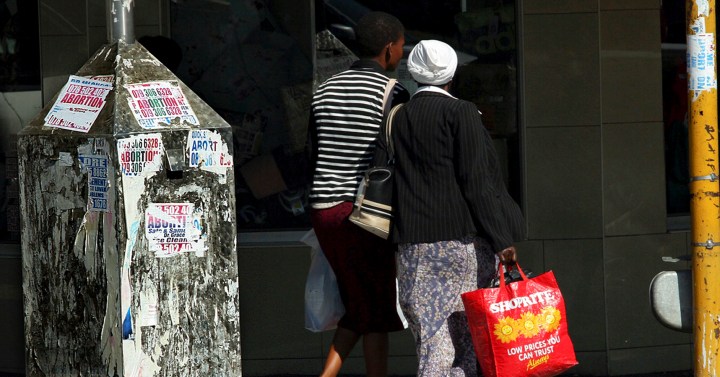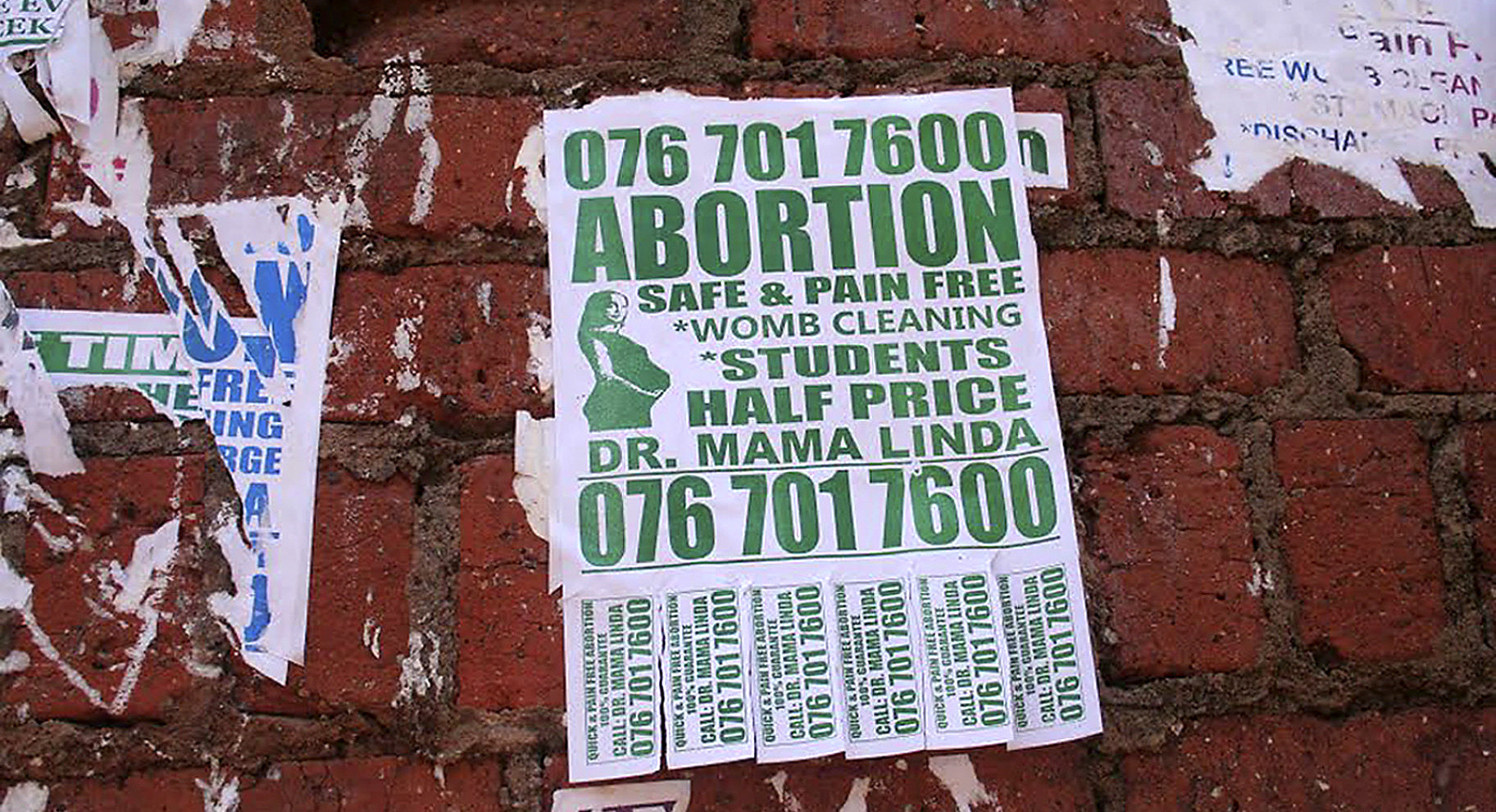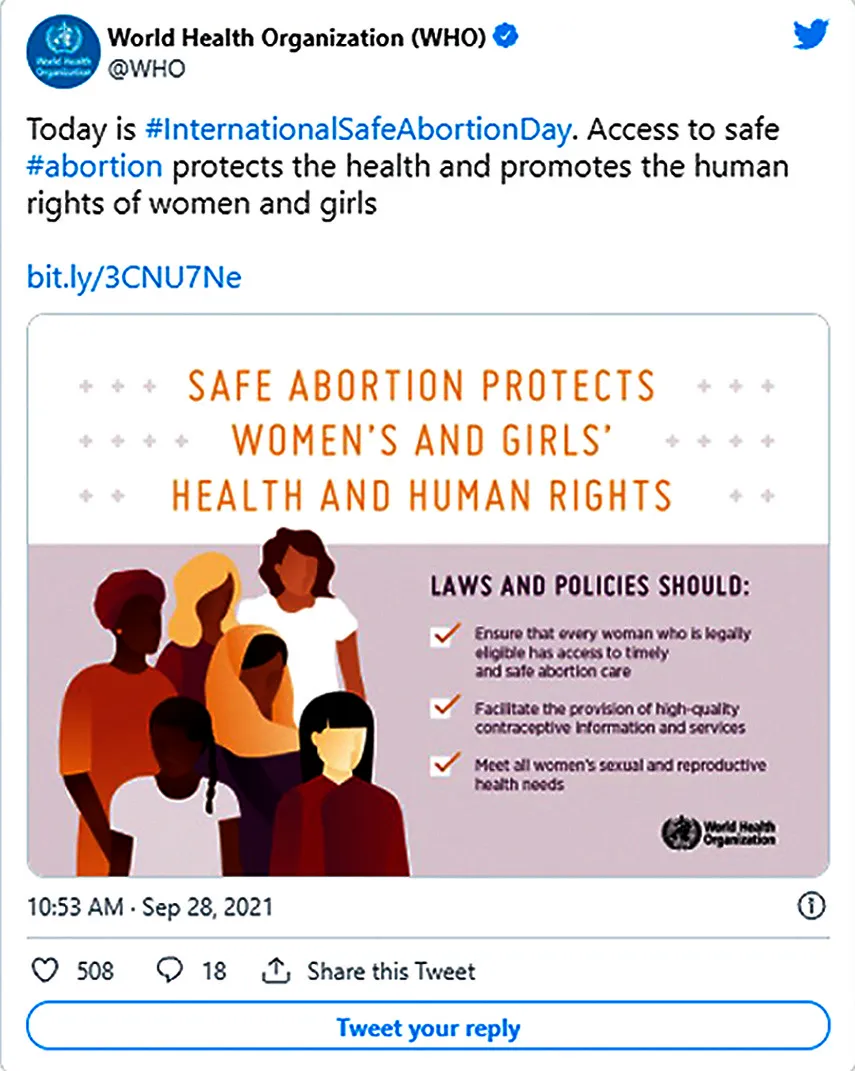SPOTLIGHT OP-ED
Big acts, little access: The disconnect between South Africa’s abortion policies and lived realities

Since the enactment of the Choice on Termination of Pregnancy Act (CTOP Act) in 1996, there has been a significant disconnect between its implementation and the official policy on safe abortion. The situation has worsened with the onset of the Covid-19 pandemic and access to abortion services is now severely limited.
Boitumelo Masipa is communications officer at Section27 and Thembi Mahlathi is the advice desk officer.
South Africa’s Choice on Termination of Pregnancy Act (CTOP) is said to be possibly the most progressive abortion policy in the world, giving women and young girls the freedom to realise their right to reproductive health – at least, that’s the aim.
In Africa, only two other countries have legalised abortion without restriction – Tunisia and Cape Verde. However, despite its liberal abortion policies, the reality in South Africa is that accessing reproductive health services, including abortion, is extremely difficult for many women and girls.
Since the enactment of the CTOP Act in 1996, there has been a significant disconnect between its implementation and the official policy on safe abortion. The situation has only worsened with the onset of the Covid-19 pandemic, and access to abortion services is now severely limited.
When the pandemic hit, the Gauteng Department of Health released a circular directing public healthcare facilities to only address matters related to Covid-19. A group of civil society organisations, including Section27 (where we both work), urgently wrote to the provincial department demanding the immediate withdrawal of the circular, arguing that it was unlawful and unconstitutional. The department rectified the oversight and issued an amended circular on 22 April 2020.
Despite the official announcement that sexual and reproductive health services should be treated as essential services during the pandemic, access to these services has remained severely restricted during the lockdown. This trend was picked up by the Section27 legal advice office, a pro bono legal service available to the public to assist with complaints about access to health and education.
Between March 2020 and March 2021, the Section27 advice desk responded to 66 Termination of Pregnancy (TOP) cases. This figure is double the number of enquiries about access to safe abortion recorded before the Covid-19 outbreak, between 2019 and 2020, when the advice desk dealt with 33 TOP cases.

Several clients who came to the Section27 advice desk for help to access abortion services reported being explicitly told by healthcare workers to ‘go back home’ because the hospitals only focus on ‘serious things’ like Covid-19. (Photo: Gallo Images / Sowetan / Sandile Ndlovu)
Several clients who came to the Section27 advice desk for help to access abortion services reported being explicitly told by healthcare workers to “go back home” because the hospitals only focus on “serious things” like Covid-19.
On one occasion, a young girl says she was told, “abortion is not an emergency; the hospital is currently trying to save lives”. She says she was told to go to another facility. Another young girl says she was told, “go seek assistance at a private clinic”. She presented at the public facility because she could not afford services at a private facility.
Acting on the experiences of more and more clients reporting having been denied access to safe abortion at facilities in Gauteng, Section27 undertook a “hot-spotting” exercise, calling to verify the availability of abortion services at the 25 officially designated abortion facilities in the province. Some facilities did not respond to our calls. In these instances, it seems likely that women who tried to enquire about TOP services at these facilities were not assisted.
See here how TOP services have entirely ceased at some facilities.
Marie’s story
The impact of this regression on access to safe abortion services is best demonstrated by the accounts of women and young girls who tried to exercise their right to reproductive health, but could not.
We spoke to two women who had contacted the Section27 advice desk this year asking for assistance with accessing safe abortion, to hear what eventually happened to them and if they had been able to end their pregnancies safely.
In the end, 25-year-old Marie (not her real name) said that after nurses at Thelle Mogoerane Hospital told her to “go look for an abortion somewhere else” because they were no longer doing abortions due to the pandemic, she went online to search for a backstreet abortion provider. Thelle Mogoerane Hospital is a designated CTOP facility. When Section27 followed up on this between June and July this year, the hospital confirmed that it was not performing termination of pregnancy procedures.
“The illegal clinics looked like real clinics online,” Marie told us. “They put pictures of doctors and a picture of the building, but when you get there, it was nothing like what they were advertising,” she said.

‘The illegal clinics looked like real clinics online,’ Marie said. ‘They put pictures of doctors and a picture of the building, but when you get there, it was nothing like what they were advertising.’ (Photo: Annica Mrincowitz)
“A man asked me how many weeks I am, and I told them I was below 12 weeks. I handed him an envelope with cash, then he gave me four pills. He said I must drink two pills. He told me that he had to insert the other two pills into my vagina. I told him I was not comfortable with that. I did it myself that day when I got home,” she said.
“I didn’t feel anything after some time, so I texted the guy to tell him nothing was happening. The guy texted me in the evening and said I must send a picture of my vagina; he said he needed to check if it’s closed. So I sent him a picture. He then said no, he couldn’t see properly. So he asked me to shave and take another picture. I shaved, although I was questioning his intentions because I didn’t understand how he would see if my vagina was closed since the picture didn’t show inside my vagina.
“He then told me to come to the clinic the next day. When I got there, he said I must get in the car with him and go to his house because the clinic was apparently not open. I was scared because I didn’t know what would happen if he maybe had other intentions. I told him, no.
“He then gave me different pills. They were yellow. He gave me four pills and told me to take them with warm water. He kept saying the abortion isn’t working because my vagina isn’t opened. He told me I must find someone to have sex with to make my vagina wider, so the pills go deep inside. He promised me that the pills are stronger… they will work. I was getting scared. I took them that day. But they still didn’t work. The pills started making me feel sick. Even today, I still vomit and feel sick because of those pills. The next day, I found another guy online. This time the website said I must go to Gandhi Square in Joburg.
“I met a guy there who also gave me four pills. I drank the two pills and put the other two in my vagina. The guy said that after a few hours I would feel something. When I got home, I started feeling pains. I couldn’t even walk.”
Marie said the pills caused heavy bleeding, and she realised she needed help. She told her boss, who took her to a GP. “I don’t wish anyone to feel what I was feeling. I think if I didn’t get to the private facility, I don’t know if I would still be alive. But ke (oh well), I survived.
“One thing I know, [is that] I didn’t have to go through this. If only they helped at the hospital. I just wish the nurses at the hospital would take us seriously. I chose to have an abortion because I know I’m not ready to be a mum. I’m forever going to have nightmares about what I went through. It was terrifying.”
It is gravely concerning that at the same time that health facilities have abruptly stopped providing safe abortion services to prioritise Covid-19 cases, the pandemic has simultaneously led to limited availability of contraceptives for women, as reported here and here.
One woman approached the advice desk and said she got pregnant because access to contraceptives had been interrupted.

Felicity’s story
Thirty-six-year-old Felicity (not her real name) told us that when she found out she was pregnant, she also went to Thelle Mogoerane Hospital. “They told me they don’t do abortions any more. I must go to another clinic. So I went to Bertha Gxowa Hospital (in Germiston). They said they are fully booked for July and told me to try again later… maybe I will get a space in August or September,” she said.
According to Felicity, the nurses who attended to her told her to find out how far she is with her pregnancy.
“That’s when I called the Section27 advice desk,” she says. “They directed me to Rahima Moosa Mother and Child Hospital. When I went there, they said I was over 12 weeks. They referred me to Leratong Hospital. By the time I went there, I was 18 weeks, and they said they wouldn’t be able to help me.
“The nurse who helped me wrote a letter to the clinic for me to start [antenatal visits]. She said I must keep the baby. I tried to explain to them why I wanted a termination, and they just said, no. The nurse started lecturing me about how I must keep this one since I only have one child. I left with the letter.”
Most abortion facilities in South Africa are only designated to offer abortion services for women who are below 12 weeks of pregnancy. Abortion beyond 12 weeks is only available at certain designated tertiary health facilities and is considered under particular circumstances.
A few days later, Felicity said she had a miscarriage, likely due to stress and anxiety from her experience trying to abort.
Rights neglected
Although sexual and reproductive health rights (SRHR) are provided for in the Constitution, this set of fundamental rights often appears to be treated as an unimportant addendum to Section 27 of the Constitution, which is the right to health.
Failing to recognise how critical SRHR is, and failing to ensure that women and girls are provided access to these sexual and reproductive health services, exposes them to the risks of unsafe abortion, which may include rape by predatory, unvetted and unregistered providers, and even death due to botched abortions. This, while there are many designated health facilities equipped to perform abortions safely.
This lacklustre approach to sexual and reproductive health services not only prevents women from fully realising their sexual and reproductive rights, but also violates women’s rights to dignity, autonomy, health and life.
We call on the government to reprioritise women’s SRHR and commit to turning the policies on abortion into real and accessible services for all women and young girls. DM/MC
Note: This article is written by employees of Section27. Spotlight is published by Section27 and the Treatment Action Campaign but is editorially independent — an independence that the editors guard jealously. The views expressed in this article are not necessarily shared by Spotlight.
This article was first published by Spotlight – health journalism in the public interest.





















 Become an Insider
Become an Insider
Comments - Please login in order to comment.